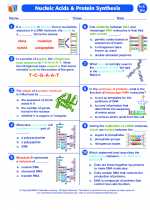Ice: Properties and Characteristics
Ice is the solid form of water, which occurs when water freezes at or below 0 degrees Celsius (32 degrees Fahrenheit). It is a crucial component of Earth's hydrosphere and plays a significant role in various natural processes and human activities.
Physical Properties of Ice
Ice exhibits several unique physical properties, including:
- Crystal Structure: Ice has a hexagonal crystal structure, which gives it a characteristic six-sided shape.
- Density: Ice is less dense than liquid water, which is why it floats on the surface of water bodies.
- Transparency: Ice is transparent, allowing light to pass through it.
- Melting Point: At standard atmospheric pressure, ice melts at 0 degrees Celsius (32 degrees Fahrenheit).
Formation of Ice
Ice forms through the process of freezing, in which liquid water loses heat and transitions into the solid state. This can occur through various mechanisms, such as:
- Freezing of Water Bodies: Lakes, rivers, and oceans freeze during cold weather, leading to the formation of ice cover.
- Formation of Snow and Ice Crystals: Snowflakes and ice crystals form in the atmosphere when water vapor condenses and freezes onto dust particles.
- Artificial Freezing: Ice can be artificially produced by lowering the temperature of water below its freezing point in controlled environments.
Role of Ice in the Environment
Ice has significant implications for the environment and ecosystems, including:
- Climate Regulation: Ice plays a crucial role in regulating Earth's climate by reflecting sunlight and influencing global temperature patterns.
- Habitat for Species: Ice-covered regions, such as polar ice caps and glaciers, serve as habitats for diverse species adapted to cold environments.
- Water Cycle: Ice contributes to the water cycle by storing freshwater in the form of glaciers and ice caps, releasing it gradually through melting.
Human Uses of Ice
Ice is utilized in various human activities and industries, including:
- Food Preservation: Ice is used for preserving perishable food items and maintaining low temperatures in refrigeration systems.
- Recreational Activities: Ice is integral to sports and recreational activities such as ice skating, ice hockey, and ice climbing.
- Industrial Applications: Industries use ice for cooling, cryogenic processes, and manufacturing of ice-based products.
Study Guide: Key Concepts
When studying the topic of ice, it is essential to understand the following key concepts:
- The physical properties and crystal structure of ice.
- The process of ice formation and the conditions required for freezing to occur.
- The environmental significance of ice, including its role in climate regulation and the water cycle.
- The diverse uses of ice in human activities and industries.
By mastering these concepts, you can gain a comprehensive understanding of the nature and significance of ice in the natural world and human society.
Happy studying!
.◂Biology Worksheets and Study Guides High School. Nucleic acids and protein synthesis

 Worksheet/Answer key
Worksheet/Answer key
 Worksheet/Answer key
Worksheet/Answer key
 Worksheet/Answer key
Worksheet/Answer key
 Vocabulary/Answer key
Vocabulary/Answer key
 Vocabulary/Answer key
Vocabulary/Answer key
 Vocabulary/Answer key
Vocabulary/Answer key
